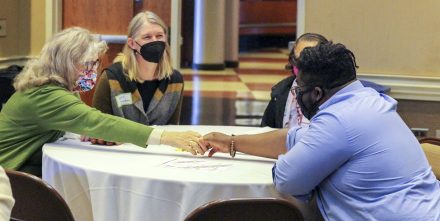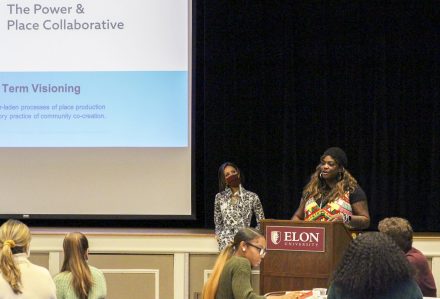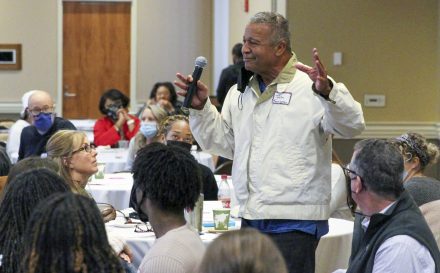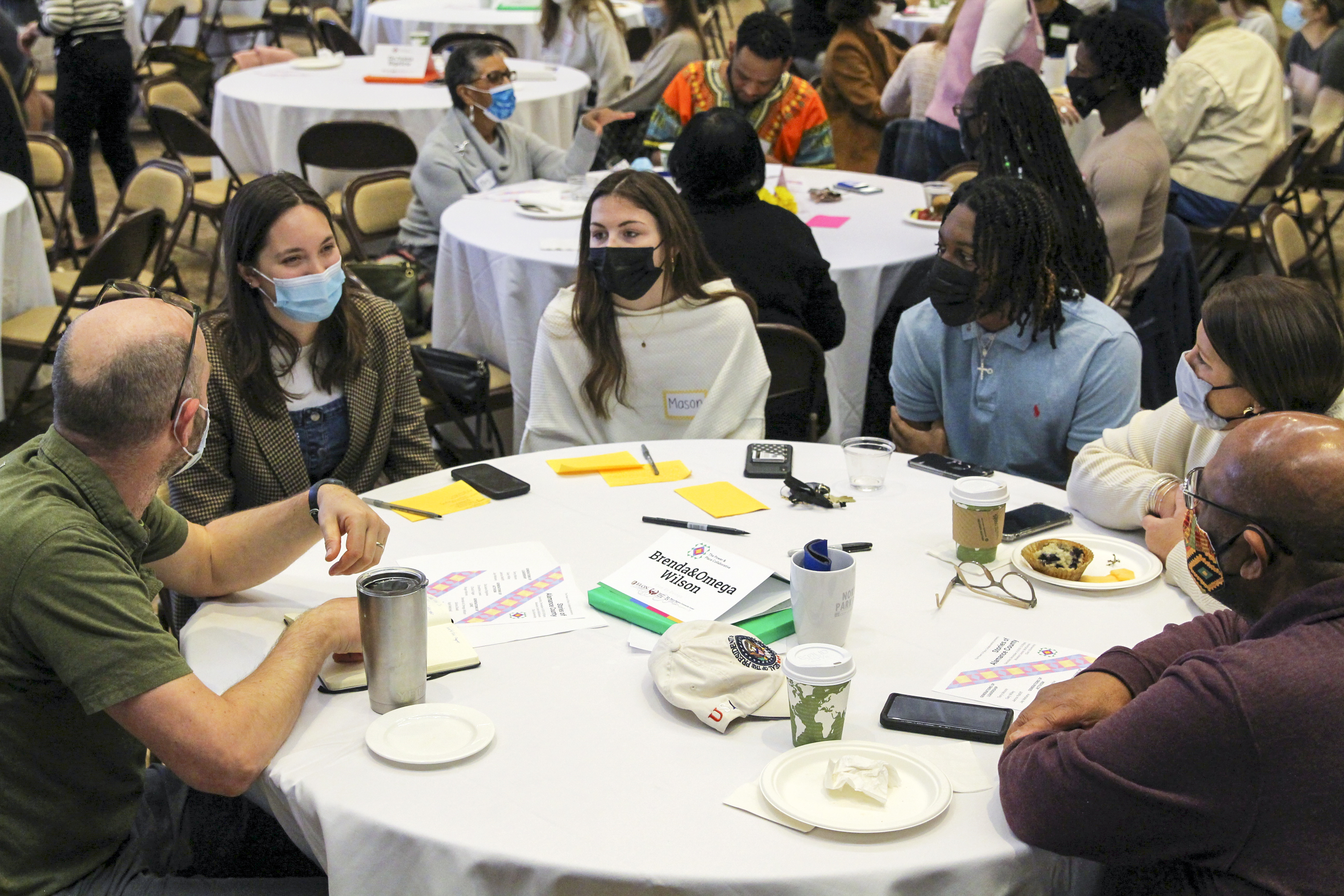The Power and Place Collaborative's second collection of digital stories documenting the lives of Alamance County's Black community premiered Dec. 4 and are available at its website and through the African American Cultural Arts and History Center.
The 11 digital stories shared Saturday during the Power and Place Collaborative’s “Stories of Alamance County” event celebrated generations of leadership, activism and love in the Black community.
Artists, activists, leaders and mentors, their experiences extended from the segregated Jim Crow South and civil rights movement to present-day struggles for equity and work to better Alamance County. Those stories created space for dialogue among students, faculty and community members gathered in McKinnon Hall and attending virtually.

In “Just How it Was,” Burlington native Terry Moore described growing up not being allowed downtown and being told to lie down in the back seat of the car for safety as his father drove through town. Moore is now a maintenance worker with the City of Burlington and North Park Pool’s technician.
“We wanted to go downtown to Zack’s Hotdogs. When we got there, we had to go to the back door. Back then we couldn’t go in the front. That’s just the way it was,” Moore says in the video. “Now, I can take my kids anywhere. Freedom is the freedom to be able to do that.”
The Power and Place Collaborative is a partnership between Elon University, Burlington’s Mayco Bigelow Community Center and the African American Cultural Arts and History Center. The project aims to preserve and present stories from and about people and places in Alamance County’s Black communities. Saturday’s event marked the project’s second year of collecting and presenting oral histories.
This fall, residents were interviewed by teams from Assistant Professor of Human Service Studies Vanessa Drew-Branch’s senior seminar and students in Race, Place and Memory — an honors seminar taught by Assistant Professor of Geography Sandy Marshall and Associate Professor and Director of Design Thinking Danielle Lake. The collaborative project was formally established in fall 2020, growing from Marshall’s work with African American Cultural Arts and History Center founder, the late Jane Sellars, and local stories his class collected in 2018. Those initial stories are also included on the collaborative’s website.

“One thing I think is so important about the Black community is that our resilience is oftentimes in the history, how we overcame,” Drew-Branch said. “It’s really important, particularly for our young people, to hear the stories of resistance and resilience. This collaborative is built on making community connections but also inspiring real community work that is for and by the community.”
The videos were displayed in three chapters according to theme. “Generations of Leadership” documented community service by Moore, Burlington Fire Chief Jay Mebane, the African American Cultural Arts and History Center’s Garry Wiley Jr., and Elon retiree Janice Ratliff — whose name is on the Center for Leadership’s building on Elon’s campus. “Generations of Activism” included community organizer DeJuana Bigelow, former NAACP Alamance County chapter president Ernestine Lewis, writer Chuck Fager and artist Roger Moore. “Generations of Love” profiled Brenda and Omega Wilson of Mebane, whose work toward local environmental justice has included work with the U.S. Department of Justice, Burlington resident Gloria Diaab and restaurateur April Mitchell.
Between each chapter, attendees discussed those themes and related their own experiences.

Graham resident Tyson Fearrington spoke about demonstrating for civil rights as an N.C. A&T University student in the mid-1960s. He expressed frustration that society seems to be moving backward, away from equality and racial harmony.
“People are not listening to each other,” Fearrington told the crowd. “This is a protected space in here, but it’s not this way once we leave.” Our country and community need more opportunities like the “Stories of Alamance County,” he said afterward.
“Like Jesus told the disciples: The healthy don’t need a doctor,” Fearrington said. “We need to reach more people with these stories. The people who need to hear them and have these conversations aren’t here. They need a larger audience.”
The stories are available on the Power and Place Collaborative website and will also be used by the African American Cultural Arts and History Center.



